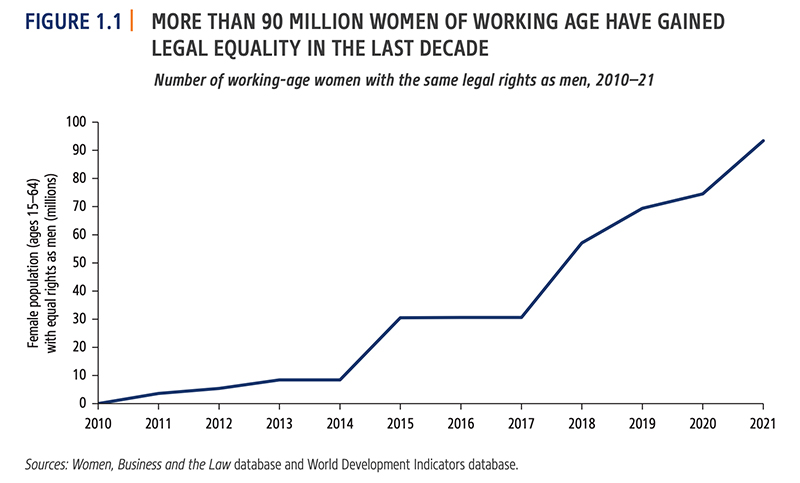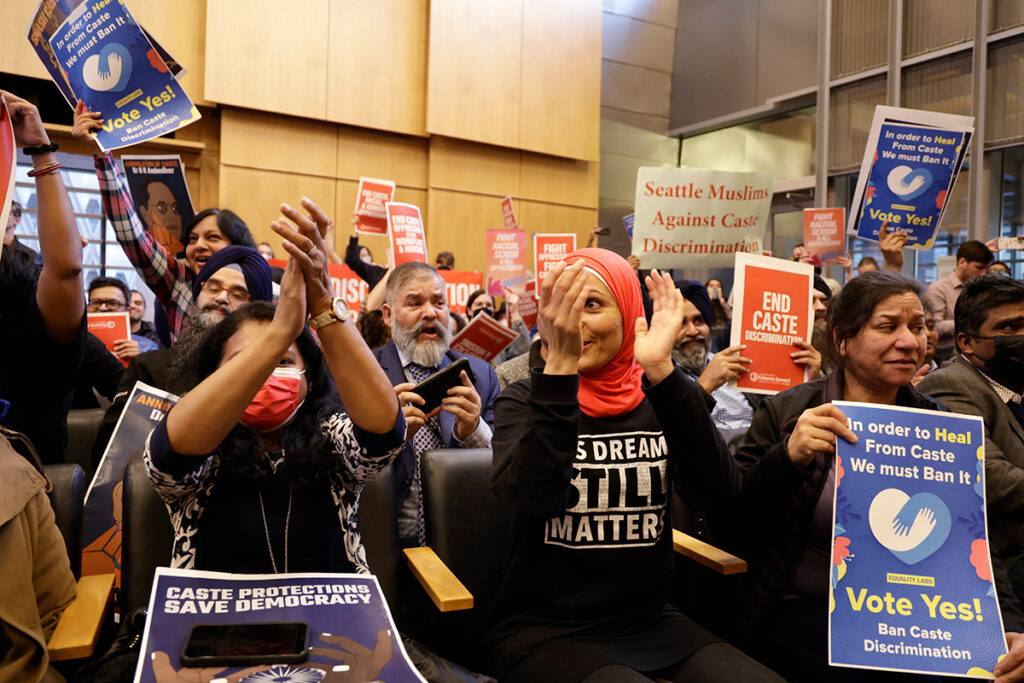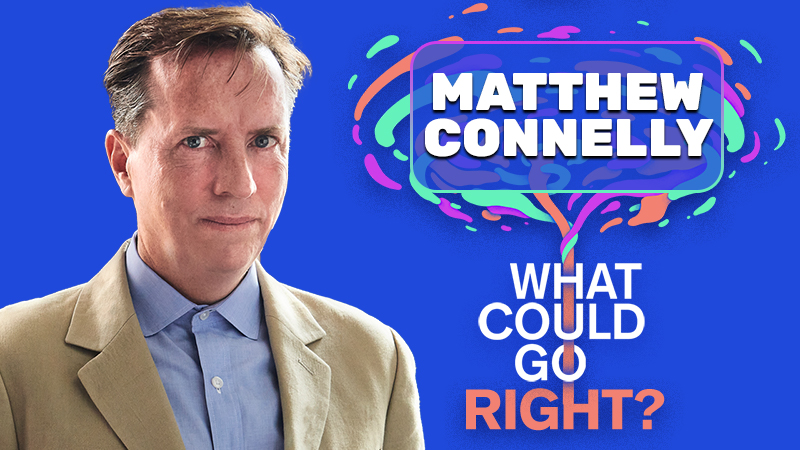Volcanoes are erupting in The Philippines, but on-fire Australia received some welcome rain. The Iran war cries have been called off and The Donald’s military powers are about to be hamstrung by the Senate. Meanwhile, his impeachment trial is starting, and we’re all on Twitter for a front-row seat.
What Could Go Right? Better money—and a baby?
Two improvements for high- and low-wage American workers from the Covid-19 pandemic
This is our weekly newsletter, What Could Go Right? Sign up here to receive it in your inbox every Thursday at 6am ET. You can read past issues here.
Two improvements for American workers
The Covid-19 pandemic was terrible. But it did contribute to two improvements in the lives of working Americans on both sides of the wage spectrum.
First, low earners. “After a brutal few decades in which low-wage jobs proliferated and the American middle class hollowed out, the working poor have started earning more—a lot more,” writes Annie Lowrey in The Atlantic. “Many low-wage jobs have become middle-wage jobs. And incomes are increasing faster for poorer workers than for wealthier ones, a dynamic known as wage compression.”
Why now? The pandemic was just one part of the two-part equation to more money. The first part happened fast: pandemic-era stimulus checks gave workers the financial cushion to quit poorly paying jobs, assess their options, and go somewhere else that pays better. The second happened more gradually: the unemployment rate, after a decade-plus of downward movement, is finally low enough that employers are being forced to raise wages and offer other benefits to attract workers. Together, these parts add up to companies like Target, for instance, which in 2022 raised its starting hourly wage to $15–$24 and announced that workers clocking at least 25 hours per week would be eligible for health coverage.
Second, high earners. Wages for them are static. But the flexibility of remote work, finds a new survey from the bipartisan public policy organization Economic Innovation Group, has led to a positive impact on marriage rates and family planning. The survey is based on answers from 3,000 US women ages 18–44.
Some questions the survey posed showed statistically insignificant links between remote work and intentions to start a family or have a second child. But others showed a clear, positive relationship. Remote workers were significantly more likely to plan on getting married in the next year than their in-office counterparts, potentially because remote work allows a much easier relocation to the same place as a partner. And for women over 35—especially for women over 35 with two or more children already—remote workers had much higher intentions to have more children, suggesting, the survey analysis says, that remote work “may help older women balance the competing demands of work and family.”
The research is still early, so we’ll have to wait and see if the higher remote-work marriage rates, for one, lead to other fertility trends. And while we know that remote work isn’t an unqualified good, it’s important to gather a body of evidence, especially in a world of falling birth rates, of what government policies would best support families. As Derek Thompson points out in The Atlantic, return-to-office rates are lower in major US cities than they are in international ones. So it does seem that in the US at least, the effects of remote work will continue to accrue.
P.S. Speaking of family-friendly policies, I did not know until I read this article that German parents, every four years, can go on a three-week health retreat called a Kur that is mostly covered by insurance. “Meals, childcare, and therapies are all included,” says the BBC. You can go for a physical health problem, but also for psychological problems and even burnout. In the personal example told in the article, the dad even got to go with his young son! This is the kind of European treat that usually makes Americans’ eyes twitch, but in this instance Germany may be making the rest of Europe jealous, too—the BBC reports that Germany is possibly the only country in the world that offers this.
Before we go
Who will protect the high seas? Finally, United Nations member states will. Almost 200 countries have agreed to set up guidelines for fishing, scientific research, mining, and other activities that occur on the two-thirds of the ocean that are international waters and thus ungoverned by any national law. This is the first international agreement on ocean protection since 1982.
“Carbon-free sources supplied over 40 percent of the US’s total energy output in 2022, a new report reveals. This is an all-time high.” If you’re wondering which states are leading the charge, look to Iowa, Oklahoma, California, Florida, and Texas, power-producers of wind and solar.
Below in the links section, solar-panel recyclers, AI for breast cancer, psychedelics for anorexia, and more.
Correction: Last week we quoted an article that said Ghana is seven years ahead of schedule on their 2016 commitment to restore two million hectares of deforested and degraded land by 2030. Thank you to one eagle-eyed reader who spotted that the math was off. Ghana committed to the two million goal in 2016 for 2030. It began implementation in 2017 as part of a larger plan called the Ghana Forest Plantation Strategy, on a timeline for 2040. By 2022, Ghana had put 628,000 hectares under restoration, putting them behind schedule for the 2030 goal, not seven years ahead.

Progress in 5 minutes: Caste as protected category

With Seattle’s historic move to ban caste discrimination, along with recently added protections at some US universities, momentum is growing. | Read more
Government secrecy | S4 E4

What’s with Biden’s, Trump’s, and Pence’s classified documents? Why is everything secret in the first place? And what is this costing democracy? Matthew J. Connelly, professor of international and global history at Columbia University, principal investigator at History Lab, and author of the book The Declassification Engine, looks at the consequence of unchecked governmental power and the effect it has on citizens. Plus, Human Rights Watch’s good news for kids and open source farming. | Listen to the episode
Progress, Please
(Found good news? Tweet at us @progressntwrk or email.)
Other good stuff in the news 🔌
Energy & Environment:
- How Norway can help cure America’s ‘range anxiety’ | Reasons to Be Cheerful
- UK renewables generated more electricity than gas this winter | Belfast Telegraph
- USPS to purchase 9,000 EVs, install 14,000 charging stations | The Hill
- As millions of solar panels age out, recyclers hope to cash in | Yale Environment 360
- The Wollemi pine’s survival proves we can save more trees | Reasons to Be Cheerful
Science & Tech:
- Studies show how asteroid-bashing spacecraft was ‘phenomenally successful’ | Reuters
- How AI can help | The New York Times
- The world’s largest 3D-printed neighborhood is here | Bloomberg
- Using AI to detect breast cancer that doctors miss | The New York Times
- Teachers and students warm up to ChatGPT | Axios
- Breakthrough study discovers that psychedelics breach our neurons | Freethink
Politics & Policy:
- Memphis approves police reforms after beating death of Tyre Nichols | Reuters
- Restoring rights for felons a rare bipartisan voting change | AP
- Biden admin offers $1.2B for distressed, shut nuclear plants | Reuters
- Federal grants aim to reconnect communities divided by highways | Bloomberg
- Donna’s Law: A new suicide prevention tool | CBS News
- River Ouse may become first river in England to gain legal rights | The Guardian
- US state abortion legislation to watch in 2023 | Reuters
Public Health:
- Lilly to cut insulin prices by 70%, cap costs at $35 per month for people with private insurance | CNBC
- This revolutionary stroke treatment will save millions of lives. Eventually. | The New York Times
- Could psychedelics help treat anorexia? | Financial Times
- A new class of drugs for weight loss could end obesity | The Economist
- A surprising remedy for teens in mental health crises | The Washington Post
- Studies link marijuana legalization to all sorts of positive public health outcomes | Reason
Society & Culture:
- Kenya’s LGBTQ community wins bittersweet victory in battle for rights | The Guardian
- Women are now publishing more books than men—and it’s good for business | Quartz
- FTSE 350 hits boardroom gender balance target three years early | GOV.UK
- Women enlist in Colombia’s army for first time in 25 years | AP
- How to help young people limit screen time—and feel better about how they look | OPB
- Alongside math and reading, schools are now teaching happiness | Reasons to Be Cheerful
Economy:
- Gen Z deserves some credit for responsible card use | Morning Consult
- You may have heard of the ‘union boom.’ The numbers tell a different story | NPR
TPN Member originals 🧠
(Who are our Members? Get to know them.)
- Lessons from the Covid lab-leak fiasco | Ian Bremmer
- How to find joy in your Sisyphean existence | Arthur C. Brooks
- What’s so funny ’bout peace, love, and exponential economic growth? | James Pethokoukis
- Washington has succumbed to dangerous groupthink on China | Fareed Zakaria
- How the arrest of an Iraqi YouTuber is inspiring a free speech revolution | Faisal Saeed Al Mutar
- Do clients want the World Bank to focus on climate? | Charles Kenny
- Why young men are in decline, and what to do | Scott Galloway
- The geopolitics of our energy future | Alec Stapp
- Matthias Matthijs on the future of Europe | Yascha Mounk
- A better kind of social media is possible—if we want it | Bina Venkataraman
- Who’s worse, Trump or DeSantis? A pointless liberal debate | Matthew Yglesias
- AI vs. humanity | Tyler Cowen
- The upside of striving, how to build a stronger mind, and what to do with ideas you hate | Jonathan Haidt
- How to save academic freedom from Ron DeSantis | Yascha Mounk
Department of Ideas 💡
(A staff recommendation guaranteed to give your brain some food for thought.)
Social media and modern politics BOTH cause depression among boys and girls | Maximum Truth
Newly crunched data show major negative trends in teen wellbeing.
Why we picked it: Takes on teens and social media use abound. This one is slightly different from the rest as it analyzes the combined effect of social media, politics, and the news, with a long-term view for perspective and suggested solutions sprinkled in at the end. —Emma Varvaloucas
New Member Alert

Tanner Campbell is the founder of Practical Philosophy, a media company creating practical and accessible philosophy content for everyday people. He hosts Practical Stoicism, a podcast aimed at helping newcomers get acquainted and comfortable with Stoicism. His forthcoming book, Living Well: Stoic Ideas for a Better Life, is a practical, actionable, and non-partisan approach to implementing the biggest ideas of Stoicism into one’s everyday life.
Until Next Time
Want to win the Nobel Prize? Then you might also want to consider eating more chocolate. 🍫


